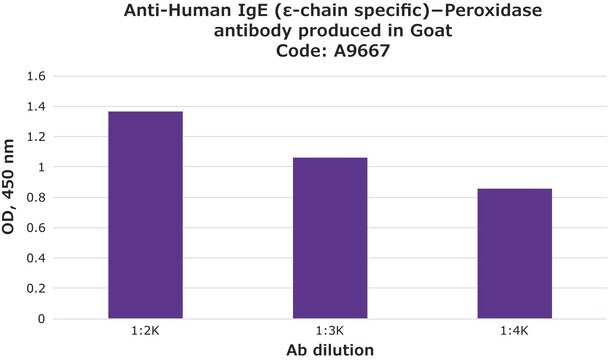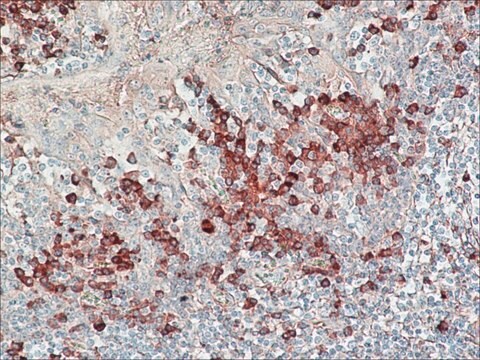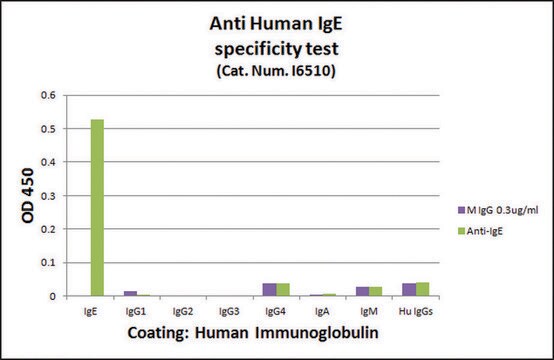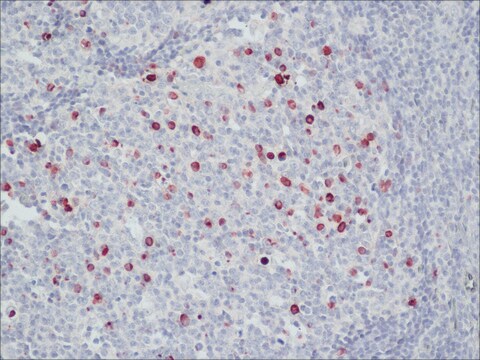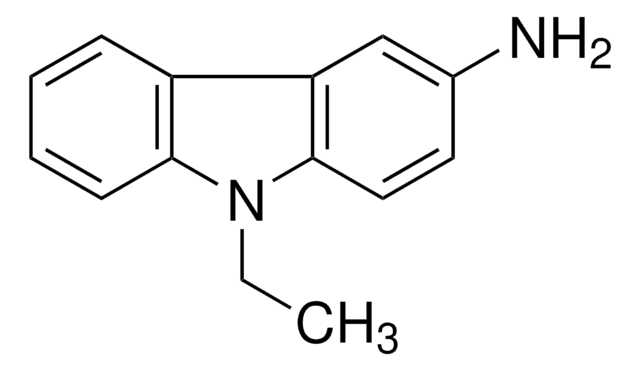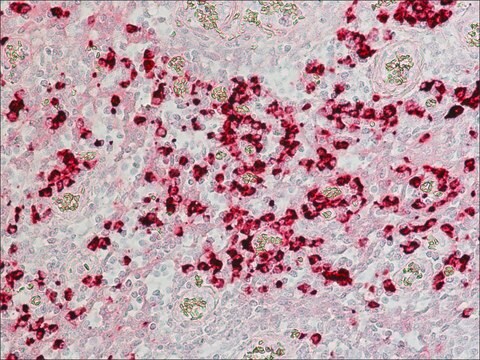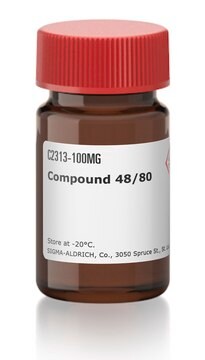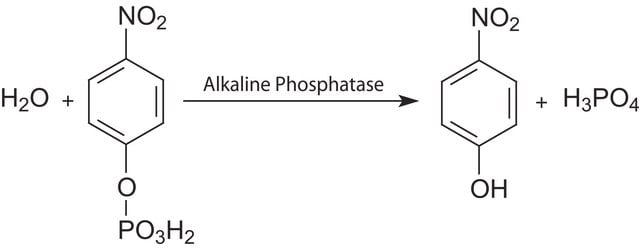A3076
Anti-Human IgE−Alkaline Phosphatase antibody, Mouse monoclonal
clone GE-1, purified from hybridoma cell culture
Sinónimos:
Monoclonal Anti-Human IgE, Monoclonal Anti-Human IgE−Alkaline Phosphatase antibody produced in mouse
About This Item
Productos recomendados
biological source
mouse
conjugate
alkaline phosphatase conjugate
antibody form
purified from hybridoma cell culture
antibody product type
secondary antibodies
clone
GE-1, monoclonal
form
buffered aqueous solution
species reactivity
human
technique(s)
direct ELISA: 1:6,000
dot blot: 1:1,000
isotype
IgG2b
shipped in
wet ice
storage temp.
2-8°C
target post-translational modification
unmodified
¿Está buscando productos similares? Visita Guía de comparación de productos
General description
Application
Western Blotting (1 paper)
- immunoblot assays
- direct ELISA
- dot blot
Biochem/physiol Actions
Physical form
Analysis Note
Disclaimer
¿No encuentra el producto adecuado?
Pruebe nuestro Herramienta de selección de productos.
Storage Class
10 - Combustible liquids
wgk_germany
WGK 3
flash_point_f
Not applicable
flash_point_c
Not applicable
ppe
Eyeshields, Gloves, multi-purpose combination respirator cartridge (US)
Elija entre una de las versiones más recientes:
¿Ya tiene este producto?
Encuentre la documentación para los productos que ha comprado recientemente en la Biblioteca de documentos.
Los clientes también vieron
Nuestro equipo de científicos tiene experiencia en todas las áreas de investigación: Ciencias de la vida, Ciencia de los materiales, Síntesis química, Cromatografía, Analítica y muchas otras.
Póngase en contacto con el Servicio técnico
